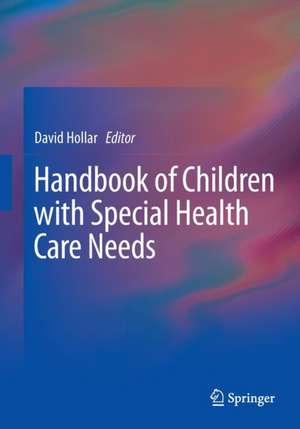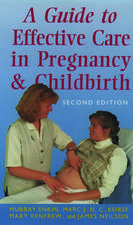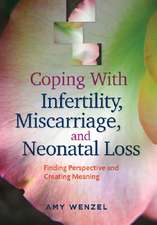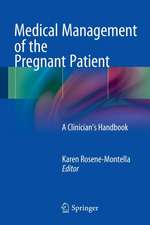Handbook of Children with Special Health Care Needs
Editat de David Hollaren Limba Engleză Paperback – 15 sep 2015
| Toate formatele și edițiile | Preț | Express |
|---|---|---|
| Paperback (1) | 2435.40 lei 6-8 săpt. | |
| Springer – 15 sep 2015 | 2435.40 lei 6-8 săpt. | |
| Hardback (1) | 2442.69 lei 6-8 săpt. | |
| Springer – 16 iul 2012 | 2442.69 lei 6-8 săpt. |
Preț: 2435.40 lei
Preț vechi: 2563.58 lei
-5% Nou
Puncte Express: 3653
Preț estimativ în valută:
466.07€ • 506.08$ • 391.50£
466.07€ • 506.08$ • 391.50£
Carte tipărită la comandă
Livrare economică 22 aprilie-06 mai
Preluare comenzi: 021 569.72.76
Specificații
ISBN-13: 9781461487470
ISBN-10: 1461487471
Pagini: 750
Ilustrații: XVII, 430 p.
Dimensiuni: 178 x 254 x 30 mm
Greutate: 0.82 kg
Ediția:1st ed. 2012
Editura: Springer
Colecția Springer
Locul publicării:New York, NY, United States
ISBN-10: 1461487471
Pagini: 750
Ilustrații: XVII, 430 p.
Dimensiuni: 178 x 254 x 30 mm
Greutate: 0.82 kg
Ediția:1st ed. 2012
Editura: Springer
Colecția Springer
Locul publicării:New York, NY, United States
Public țintă
Professional/practitionerCuprins
1. Policy: Its History, Intentions and Consequences for Children with Special Health Care Needs.- 2. Severe Communication Disorders.- 3. Attention Deficit Hyperactivity Disorder (ADHD), Perceived Competence, and Self-Worth.- 4. Quality Of Life In Children Diagnosed With Specific Learning Disability Or Attention-Deficit/Hyperactivity Disorder.- 5. Children and Adolescents with Mobility Limitations.- 6. Rethinking Deaf Learners Education – A Human Rights Issue.- 7. Childhood eye disorders and visual impairment.- 8. Evaluating School-Aged Children with Visual Disabilities.- 9. Oral Health Access Issues for Children with Special Health Care Needs.- 10. Tuberculosis: the special needs of children.- 11. Children with multiple sclerosis.- 12. Fetal Alcohol Spectrum Disorders: Review of Teratogenicity, Diagnosis and Treatment Issues.- 13. Newborn screening for congenital disorders in routine and research.- 14. Genetic and Metabolic Conditions for Children with Special Health Care Needs.- 15. Development from Conception through Adolescence: Physiological and Psychosocial Factors Impacting Children with Special Health Care Needs.- 16. Using Population-Based Survey Data to Monitor the Health of Children and Youth with Special Health Care Needs and Disabilities.- 17. Secondary Conditions in Youth with Disabilities.- 18. Accessible Substance Abuse Prevention for all Children.- 19. Research Methods and Epidemiology for Children with Special Health Care Needs.- 20. Addressing Bullying Among Students with Disabilities within a Multi-Tier Educational Environment.- 21. Building a Medical Home for Children and Youth with Special Health Care Needs.- 22. Epilogue: Advancing Health Outcomes and Social Participation for CSHCN.
Notă biografică
David Hollar, PhD is an Assistant Professor in the Department of Medicine, University of North Carolina School of Medicine, Chapel Hill. At UNC, he designs and analyzes educational research projects involving assessments of medical student and resident performances in simulated environments. He also performs epidemiological research on risk behaviors and diagnostic health conditions for persons with disabilities, using secondary longitudinal clinical and public health databases. He is an active member of the American Educational Research Association, the American Public Health Association (Disability Section), and is a member of the editorial board of the Maternal and Child Health Journal, published by Springer.
Textul de pe ultima copertă
Handbook of Children with Special Health Care Needs
David Hollar, editor
Children with chronic conditions, developmental disorders, and birth defects
represent a sizeable minority of American children—as many as one in five.
Often their families have financial or other issues limiting their access to
appropriate care, thus limiting their adult prospects as well. Compounding the
problem, many valuable resources concerning this population are difficult to
access although they may be critical to the practitioners
who work to deliver quality care and services. In response, the
Handbook of Children with Special Health Care Needs assembles research,
applied, and policy perspectives reflecting the range of children’s problems
requiring special services. Widely studied conditions (e.g., communication
disorders, substance abuse) and those receiving lesser attention (e.g.,
tuberculosis) are covered, as are emerging ideas such as the “medical home”
concept of continuity of care. Contributors offer screening and evaluation
methods, research guidelines, and diagnostic and treatment interventions to
inform the greatest spectrum of readers, including: Quality oflife in children
diagnosed with ADHD or specific learning disabilities Evaluating school-aged
children with visual impairments Deaf culture advocates on deaf learners’
education Oral health access issues in children requiring special services
Diagnostic and treatment issues in fetal alcohol spectrum disorders Addressing
and preventing bullying of children with special health care needs Its
interdisciplinary outlook makes the Handbook of Children with Special Health
Care Needs a vital, forward-looking text for pediatricians, early childhood and special education professionals, disability advocates, social workers, and providers for children with special health care needs.
David Hollar, editor
Children with chronic conditions, developmental disorders, and birth defects
represent a sizeable minority of American children—as many as one in five.
Often their families have financial or other issues limiting their access to
appropriate care, thus limiting their adult prospects as well. Compounding the
problem, many valuable resources concerning this population are difficult to
access although they may be critical to the practitioners
who work to deliver quality care and services. In response, the
Handbook of Children with Special Health Care Needs assembles research,
applied, and policy perspectives reflecting the range of children’s problems
requiring special services. Widely studied conditions (e.g., communication
disorders, substance abuse) and those receiving lesser attention (e.g.,
tuberculosis) are covered, as are emerging ideas such as the “medical home”
concept of continuity of care. Contributors offer screening and evaluation
methods, research guidelines, and diagnostic and treatment interventions to
inform the greatest spectrum of readers, including: Quality oflife in children
diagnosed with ADHD or specific learning disabilities Evaluating school-aged
children with visual impairments Deaf culture advocates on deaf learners’
education Oral health access issues in children requiring special services
Diagnostic and treatment issues in fetal alcohol spectrum disorders Addressing
and preventing bullying of children with special health care needs Its
interdisciplinary outlook makes the Handbook of Children with Special Health
Care Needs a vital, forward-looking text for pediatricians, early childhood and special education professionals, disability advocates, social workers, and providers for children with special health care needs.
Caracteristici
Addresses the complementary but rarely integrated perspectives on children with special health care needs and children with disabilities Combines research, clinical, and policy expertise from public health, child psychology, medicine, and education International scope of authorship and coverage Important resource for clinicians, educators, policymakers, persons with disabilities, and advocates for children with special health care needs/disabilities Includes supplementary material: sn.pub/extras






